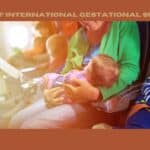
I wrote a piece a few weeks ago about Geron Corporation being granted the first human clinical trials using embryonic stem cells in spinal cord injured patients:
A seismic shift has occurred this week. For the first time ever in history, human embryonic stem cells will be injected into human subjects. Geron Corporation has enthusiastically announced the FDA’s approval of their Phase 1 clinical trial to begin using human embryonic stem cells in patients with new spinal cord injuries. This news came as no big surprise; Geron’s CEO, Thomas Okarma, has been promising for years that they would be the first in human trials using embryonic stem cells. Geron has poured some $100 million into embryonic stem cell research since 1996; they have much at stake as they begin this trial, injecting human embryonic stem cells into patients. I imagine investors in Geron stock are delighted now as its price soared some 50% with this news, and Geron stock has moved from “hold” to “buy” status. We shall see.
But today there is BREAKING news here and here.
From the BBC story:
A boy treated with foetal stem cells for a rare genetic disease has developed benign tumours, raising questions about the therapy’s safety.
The boy, now 17, received the stem cells in 2001 at a Moscow hospital and four years later scans showed brain and spinal tumours, PLoS Medicine reports.
Israeli doctors removed the abnormal growth from his spine and tests suggest it sprouted from the stem cells.
Critics say the finding is evidence against the controversial therapy.
Apart from the ethics of using cells taken from embryos, opponents say there are big safety concerns.
Here is the link to the journal article on the boys case.
Author Profile

- Jennifer Lahl, MA, BSN, RN, is founder and president of The Center for Bioethics and Culture Network. Lahl couples her 25 years of experience as a pediatric critical care nurse, a hospital administrator, and a senior-level nursing manager with a deep passion to speak for those who have no voice. Lahl’s writings have appeared in various publications including Cambridge University Press, the San Francisco Chronicle, the Dallas Morning News, and the American Journal of Bioethics. As a field expert, she is routinely interviewed on radio and television including ABC, CBS, PBS, and NPR. She is also called upon to speak alongside lawmakers and members of the scientific community, even being invited to speak to members of the European Parliament in Brussels to address issues of egg trafficking; she has three times addressed the United Nations during the Commission on the Status of Women on egg and womb trafficking.
Latest entries
 infertilityApril 23, 2024The Rise of International Gestational Surrogacy in the U.S.
infertilityApril 23, 2024The Rise of International Gestational Surrogacy in the U.S. Assisted Reproductive TechnologyApril 16, 2024Founder Jennifer Lahl’s Speech on Surrogacy to the Casablanca Declaration
Assisted Reproductive TechnologyApril 16, 2024Founder Jennifer Lahl’s Speech on Surrogacy to the Casablanca Declaration #BigFertilityFebruary 27, 2024No, Alabama Didn’t Ban IVF
#BigFertilityFebruary 27, 2024No, Alabama Didn’t Ban IVF ArticleSeptember 25, 2023The Little Engine That Could
ArticleSeptember 25, 2023The Little Engine That Could

